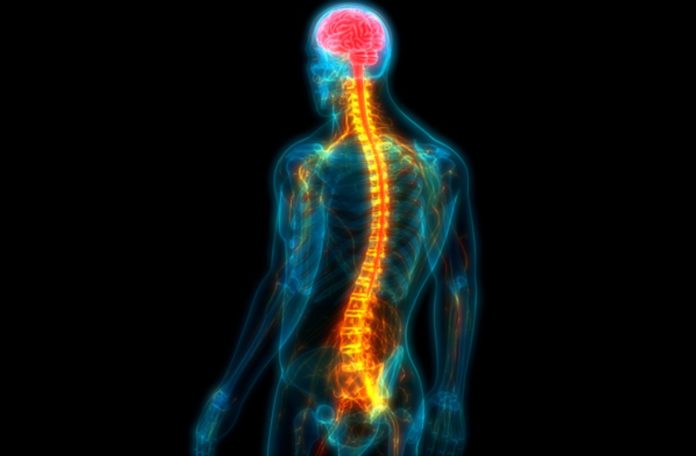Researchers from the University of Birmingham have demonstrated that a potential drug that penetrates the brain and is being developed as a cancer treatment can accelerate the repair of damaged nerves following spinal trauma.
The study, which was just published in Clinical and Translational Medicine, used cell and animal models to show that the candidate drug, AZD1390, can restore sensory and motor function after spinal injury by blocking the response to DNA damage in nerve cells and promoting the regeneration of damaged nerves when taken orally.
The announcement comes after the same research team demonstrated how inhibiting the inflammatory response with a different investigational medicine (AZD1236) can reduce damage following spinal cord injury.
Both investigations were funded by AstraZeneca’s Open Innovations Programme.
AstraZeneca is also looking at AZD1390’s ability to inhibit ATM-dependent signaling and repair of DNA double strand breaks (DSBs), a process that makes cancer cells more susceptible to radiation therapy. DNA damage, such as DSBs in the genome, which happen in a number of prevalent malignancies and even after spinal cord injury, triggers the DNA Damage Response system (DDR).
The chronic activation of this system may hinder recovery following spinal cord damage, according to Professor Zubair Ahmed and Dr. Richard Tuxworth of the university’s Institute of Inflammation and Ageing, and stopping it may encourage nerve healing and restore function following injury.
In their early research, they discovered that AZD1390 blocked the ATM protein kinase pathway, a vital biochemical system controlling the response to DNA damage, and increased nerve cell proliferation in culture.
The impact of AZD1390 after spinal cord injury was next examined by the researchers using animal models. Here, they demonstrated that oral administration of AZD1390 significantly inhibited the ATM protein kinase pathway, promoted neuron regeneration beyond the injury site, and restored the nerves’ ability to transmit electrical impulses over the injury site.
Professor Ahmed said, “This is an exciting time in spinal cord injury research with several different investigational drugs being identified as potential therapies for spinal cord injury. We are particularly excited about AZD1390 which can be taken orally and reaches the site of injury in sufficient quantities to promote nerve regeneration and restore lost function.”
According to the study authors, within 4 weeks of damage, animals treated with AZD 1390 were no longer different from uninjured animals in terms of their sensory and motor abilities.
“This early study shows that AZD1390 could be used as a therapy in life-changing conditions. In addition,” according to Dr. Tuxworth, “repurposing this existing investigational drug potentially means we can reach the clinic significantly faster than developing a new drug from scratch.”
Image Credit:
You were reading: Scientists Have Found A New Way To Boost Regeneration Of Damaged Nerve
